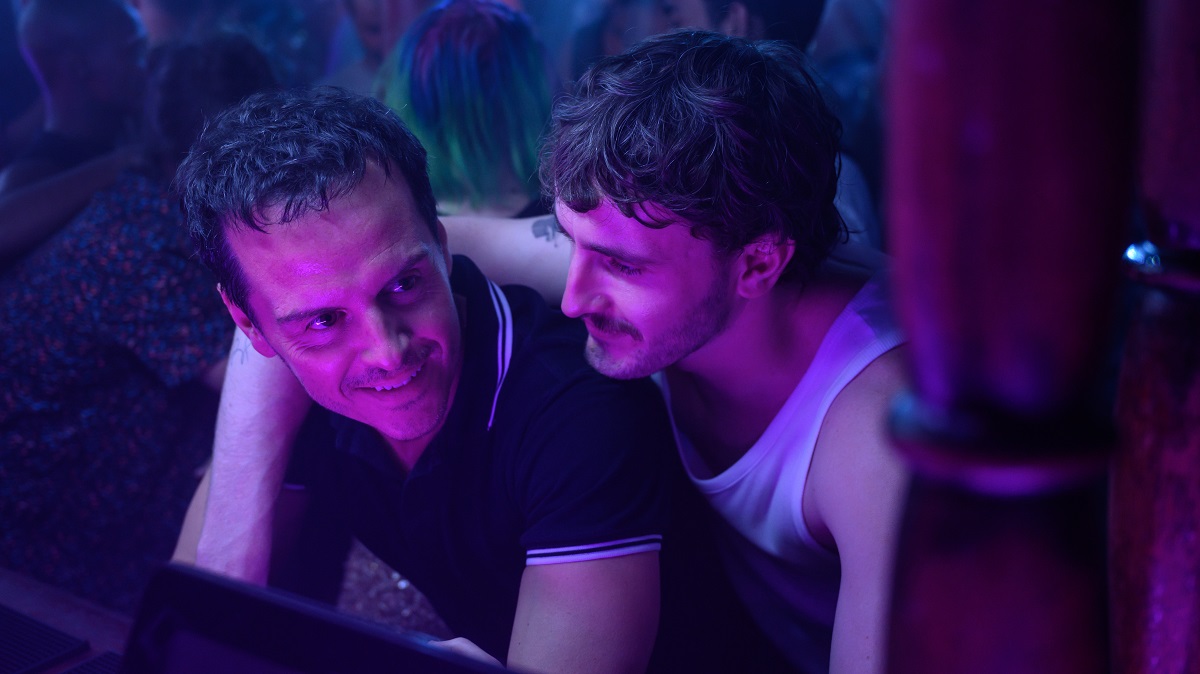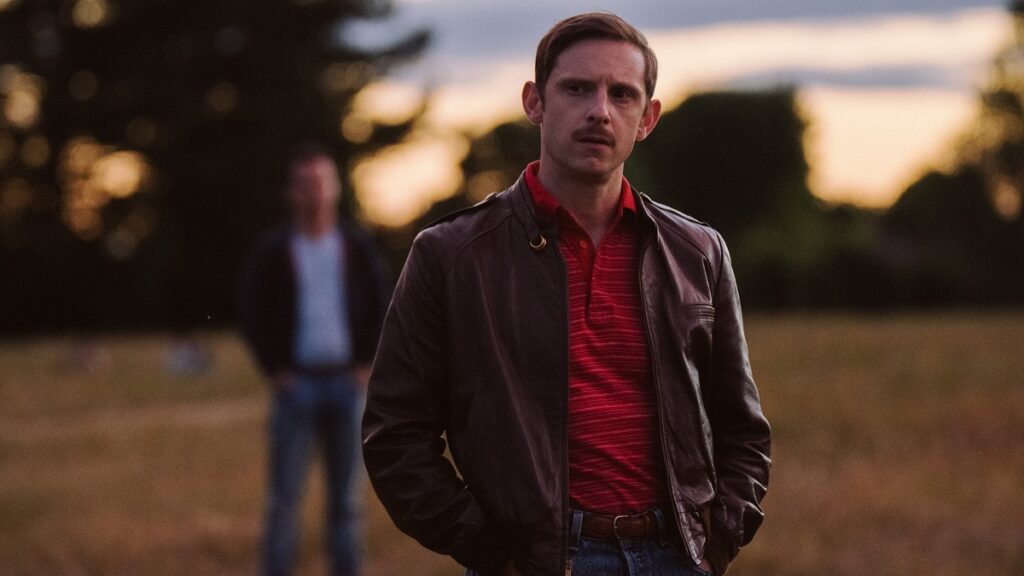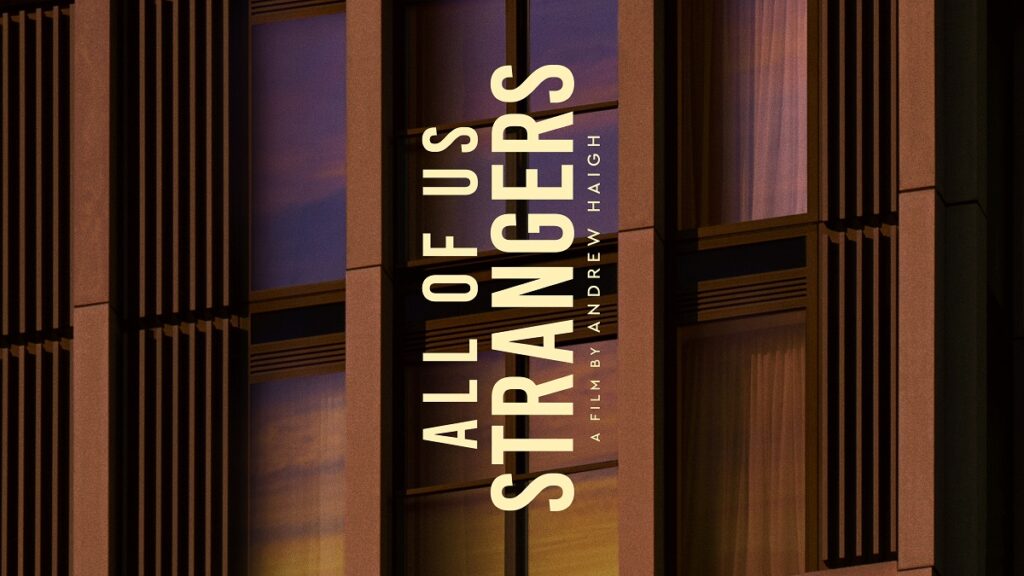
Image via Fox Searchlight
Having worked on some truly eclectic projects including Prano Bailey-Bond’s Censor and Oliver Hermanus’ Living, French composer Emilie Levienaise-Farrouch brings her unique skillset to Andrew Haigh’s All Of Us Strangers, starring Andrew Scott, Paul Mescal, Jaime Bell, and Claire Foy. She recently sat down with Martin Carr and opened up about what made this project so special, and what made her connect so completely with Andrew’s vision.
How exactly did you get involved and what was Andrew’s original pitch to you?
So I got involved after they had already been editing for a few months. It’s a film that was edited for a year, so I was involved six months into the editing process. There wasn’t really a pitch, they sent me a cut and I connected pretty strongly with the film.
I just had an instinct that I had enough connection and understanding of what Andrew Haigh was trying to say that I would be able to do a good job. Then we had a chat and both Andrew (writer-director) and Jonathan (editor) were curious to know my reaction. It turned out to be pretty similar to what they were trying to say and very early on they understood that I wasn’t going to impose a huge score on them, but was more than happy to do something subtle in line with Andrew Scott’s performance.
The film itself is very sparse in terms of musical contributions and it leans very much into silences that play a really strong part in the film, so how did you approach slotting into that and establishing the mood?
The thing that’s interesting is not only that we got to something like 50-55 minutes of original score, but just how atmospheric it turned out to be. We did a lot of work with the sound design team when I sent them some of my sounds and they modulated them. Especially the interaction in Adam’s apartment, where we tried to make the music grow organically from the room and the sound of the space by fading it in and out. Elsewhere, In terms of using silence, there were some moments where it’s more efficient to pull back.
In the park scene when Adam first encounters his father, again that’s reflected in the use of sound design. The moment when he turns around, when we see his father for the first time, both the sound in the trees and the music disappears altogether and the music is stripped back to just a slightly scintillating synthesiser. There was always the approach that sometimes it’s the absence of sound that draws you closer to the edge of your seat, making you more engaged with what’s about to happen, than a huge flourish of music might.
Another moment where they use complete silence is during the first sex scene, the room tone disappears and music hasn’t started and it’s kind of this absence of sound and music that makes you appreciate what’s happening because you feel the emptiness all of a sudden and that contrast is very effective.
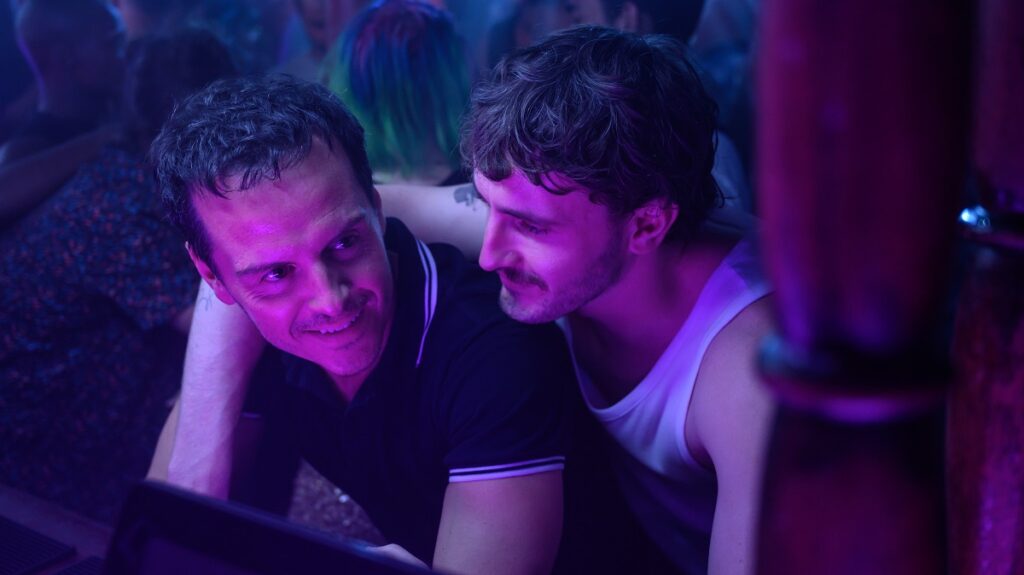
Image via Fox Searchlight
Without giving anything away, how did you approach the shifting perspectives of character through your composition?
So what’s interesting is that even though the audience sees things from different perspectives we are always with Adam. However, there is one moment towards the very end where I wanted to focus a bit more on Harry just for a minute and feel through him and his heartbreak rather than focusing solely on Adam’s psyche. I think it’s just getting really tuned in with the character, because this is a very disjointed storyline that goes to different places and embraces different genres, so I thought it would be better if the score was quite united throughout.
In a sense if it doesn’t feel like the score is telling us we are in Adam’s parents storyline or in Harry’s storyline, it is always with him, because if we stay with Adam then the jumps don’t matter as much. You as an audience have an anchor both in Andrew’s performance and in the score, so just stay with his emotions and how he’s perceiving the situation first and foremost.
All of Us Strangers carries a powerful message for people beyond cinema. What have you taken away from it?
It came to me at a specific time in my life also, where I had processed grief and gone through parental grieving so I think that maybe I approached the story from the other side of Adam’s journey in a sense. I felt more that my contribution was to help people empathise with him and be on his side from the get go. The risk with this type of very subtle performance and a character that’s quite lonely and isolated, is that it can be isolated from the audience as well.
My approach was always to make music that invites you into siding with him and wanting him to do well and see the underlying warmth of this person. That he is not a grumpy mean person, just someone who wants to connect but doesn’t know how. So I had a more affectionate approach to Adam from the start and wanted people to understand that he was emotionally still a little boy that they could open up to.
Image via Fox Searchlight
You’ve worked on Sensor and you also worked on Living and now All of Us Strangers. These are all really powerful films in their own unique way so is it the project, the collaboration, the story or the underlying relevance of the themes that attracts you most?
All of the above. I like having a good sense of the collaborativeness of everyone involved, because I come in quite late to projects and it’s always easy to judge the mood of everyone involved so you can get a sense if it’s been a joyous and supportive collaboration or not, which is a huge advantage.
I think those three films are actually all in a relationship with grief to a certain extent, whether you’re the person who has to accept the fact that you’re going to die, or a survivor of someone who passed away. So there is a theme where I can see a centre of interest that I may have had over the past few years.
I think they all excited me in the way you have filmmakers who have a real vision, trying to do something both deep in terms of the message but also original in terms of the way that message is presented through the medium of cinema, and all that you can do with this that you can’t do with anything else beyond a simple portrayal. There is value to that too but you have a movie camera, you have the effects, you have makeup and everything else, so you might as well try to get those universal messages across using the tools that you have available.
Sensor was looking into a societal phenomena, a personal trauma, and how to deal with it but in a visually crazy and completely original way. Living is gorgeous and so beautifully framed and it’s the same cinematographer actually as All of Us Strangers (Jamie Ramsay). That’s what impressed me the most with the cut is that you have a story that’s extraordinarily specific.
If you think about it in terms of narrative it is very specific but the themes it tackles, everyone has gone through them or will go through those challenges or those emotions at one point in their life. I really like working on films where I can sense that the filmmakers see it as more than an entertainment or a job. I like feeling like they’re putting a little bit of themselves into what they’re doing.
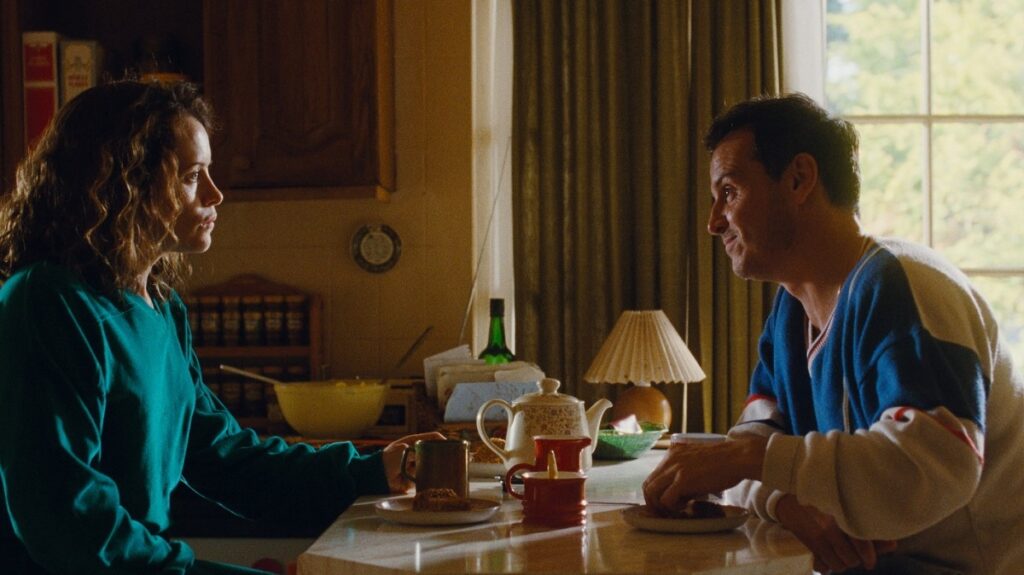
Image via Fox Searchlight
Can you describe for me your perfect Sunday afternoon?
It would depend on what I’ve done on Saturday. Some Sundays you just wanna chill and cook a big batch of risotto or pasta and read or watch a few films, and some Sundays you want to go on a huge walk in Hampstead Heath and have roast.
The end of the day is always going to be trying to have a good three hours at home reading because it’s really the activity that allows me to be back into my calm brain, so reading is the key to my Sundays
Martin Carr would like to thank Emilie for taking time out to talk about her involvement in All Of Us Strangers.
All Of Us Strangers is released in the US on 22 December and hits UK shores from 24 January 2024 through Fox Searchlight.



